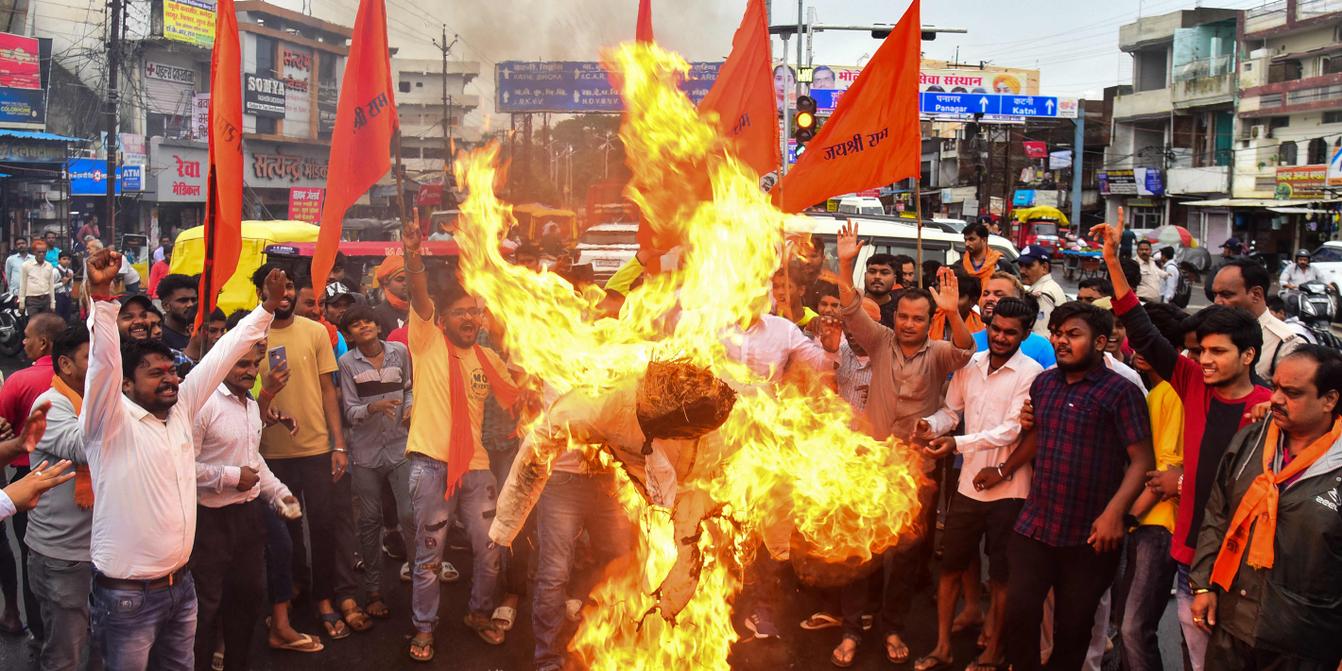The Hindutva Ideology and Its Political Manifestation
At the heart of India's growing religious polarization lies Hindutva, a political ideology formulated in 1922 that encompasses Hindu nationalism and aims to establish Hindu hegemony within India. Unlike Hinduism's spiritual tradition rooted in compassion and pluralism, Hindutva has been characterized by analysts as a variant of right-wing extremism and "almost fascist in the classical sense". The ideology serves as the foundation for organizations collectively known as the Sangh Parivar, including the Rashtriya Swayamsevak Sangh (RSS) and the ruling BJP.
Critics argue that Hindutva proponents have distorted Hindu religious sentiments for political gain, creating communal divisions that undermine India's constitutional commitment to secularism. The movement's strategies, inspired by European fascism according to some scholars, focus on creating a homogenized majority and establishing cultural hegemony that often marginalizes non-Hindu communities.
Policy and Legal Framework Supporting Discrimination
The implementation of the Citizenship Amendment Act (CAA) in March 2024 exemplifies the government's approach to institutionalizing religious discrimination. The law provides expedited citizenship pathways for non-Muslim refugees from Afghanistan, Pakistan, and Bangladesh while explicitly excluding Muslims. Both the United Nations and the United States have expressed concerns about the legislation, with the UN describing it as "fundamentally discriminatory in nature" and potentially "in breach of India's international human rights obligations".
Systematic Targeting Through "Bulldozer Justice"
One of the most visible manifestations of anti-Muslim discrimination has been the demolition of Muslim homes and properties without legal authorization in several BJP-ruled states. Human Rights Watch has documented how authorities have used bulldozers to destroy Muslim-owned properties in response to alleged infractions, creating what critics call "bulldozer justice".
In October 2022, following accusations that 19 Muslim men threw stones at a Hindu ceremonial dance in Madhya Pradesh, authorities demolished the homes of three detained men without legal process, claiming the structures were built illegally. This pattern of demolishing Muslim properties as extrajudicial punishment has been observed across multiple Indian states, prompting Amnesty International to call for an immediate end to these practices.
Public Humiliation and Extrajudicial Punishment
Beyond property destruction, Muslims have faced public humiliation and physical abuse at the hands of authorities. In a particularly disturbing incident in Gujarat's Kheda district in October 2022, police officers were filmed publicly flogging several Muslim men accused of disrupting a Hindu festival, while other officials held the men against an electricity pole. The violent spectacle occurred in front of cheering crowds and was even praised on some pro-government television networks.
Violent Outbreaks and Communal Tensions
The 2020 Delhi riots represent one of the most severe recent outbreaks of anti-Muslim violence. Beginning on February 23, 2020, multiple waves of bloodshed and property destruction in North East Delhi resulted in 53 deaths, with two-thirds being Muslims who were "shot, slashed with repeated blows, or set on fire". The violence targeted Muslims specifically, with some men forced to remove their lower garments to verify their religion through circumcision before being attacked.
During these riots, four mosques were set ablaze, and properties destroyed were disproportionately Muslim-owned. The aftermath saw hundreds of wounded Muslims receiving inadequate medical care, while many others fled their neighborhoods entirely.
Historical Context of Violence
The pattern of anti-Muslim violence has deeper historical roots, notably in the 2002 Gujarat riots that occurred while Narendra Modi was the state's Chief Minister. Those riots left more than 1,000 people dead, predominantly Muslims. A senior police officer's sworn statement to India's Supreme Court alleged that Modi deliberately allowed the anti-Muslim violence, claiming the then-Chief Minister said that "Hindus should be allowed to vent their anger". While Modi has consistently denied wrongdoing, this incident remains a significant reference point in discussions about communal violence in contemporary India.
International Condemnation
The U.S. Commission on International Religious Freedom (USCIRF) has recommended for six consecutive years that India be designated as a Country of Particular Concern (CPC) due to "particularly severe" violations of religious freedom. Their April 2025 report stated that "religious freedom conditions in India continued to deteriorate" as "attacks and discrimination against religious minorities continued to rise".
The Council on American-Islamic Relations (CAIR) has welcomed Amnesty International's reports detailing the destruction of Muslim properties and has urged the U.S. State Department to declare India a country of particular concern due to the ongoing persecution of religious minorities.
Implications for India's Democracy and Secularism
The rise of Hindu nationalism presents profound challenges to India's constitutional identity as a secular democracy. The targeted discrimination against Muslims undermines the country's founding principles and threatens its pluralistic fabric. Fueled by nationalistic rhetoric from the BJP party and Prime Minister Modi, the increasing attacks include "vigilante violence, targeted and arbitrary killings, and demolition of property and places of worship".
When confronted with these criticisms, India's Ministry of External Affairs has typically dismissed them as "malicious," claiming they "misrepresent facts and peddle a motivated narrative about India". However, international organizations and independent observers continue to document patterns of discrimination that contradict these denials.
A Democracy at the Crossroads
India stands at a critical juncture where its commitment to religious pluralism, constitutional values, and equal citizenship is under severe test. The systematic marginalization of Muslims through legal mechanisms, extrajudicial punishments, and tacit approval of communal violence represents a significant departure from the inclusive vision of India's founders.
As the BJP-led Hindu nationalist movement continues "moving rapidly to restrict the rights of religious minorities across the country", the international community faces increasing pressure to respond more forcefully to these human rights concerns. The continued implementation of discriminatory policies and the normalization of anti-Muslim rhetoric not only endangers India's Muslim citizens but also threatens the democratic ideals upon which the nation was founded.
Human Rights Watch's South Asia director Meenakshi Ganguly summed up the situation starkly: "Officials blatantly disregarding the rule of law are sending a message to the public that Muslims can be discriminated against and attacked". Until this message changes, India's claim to be the world's largest democracy will remain seriously compromised.

Comments
Post a Comment